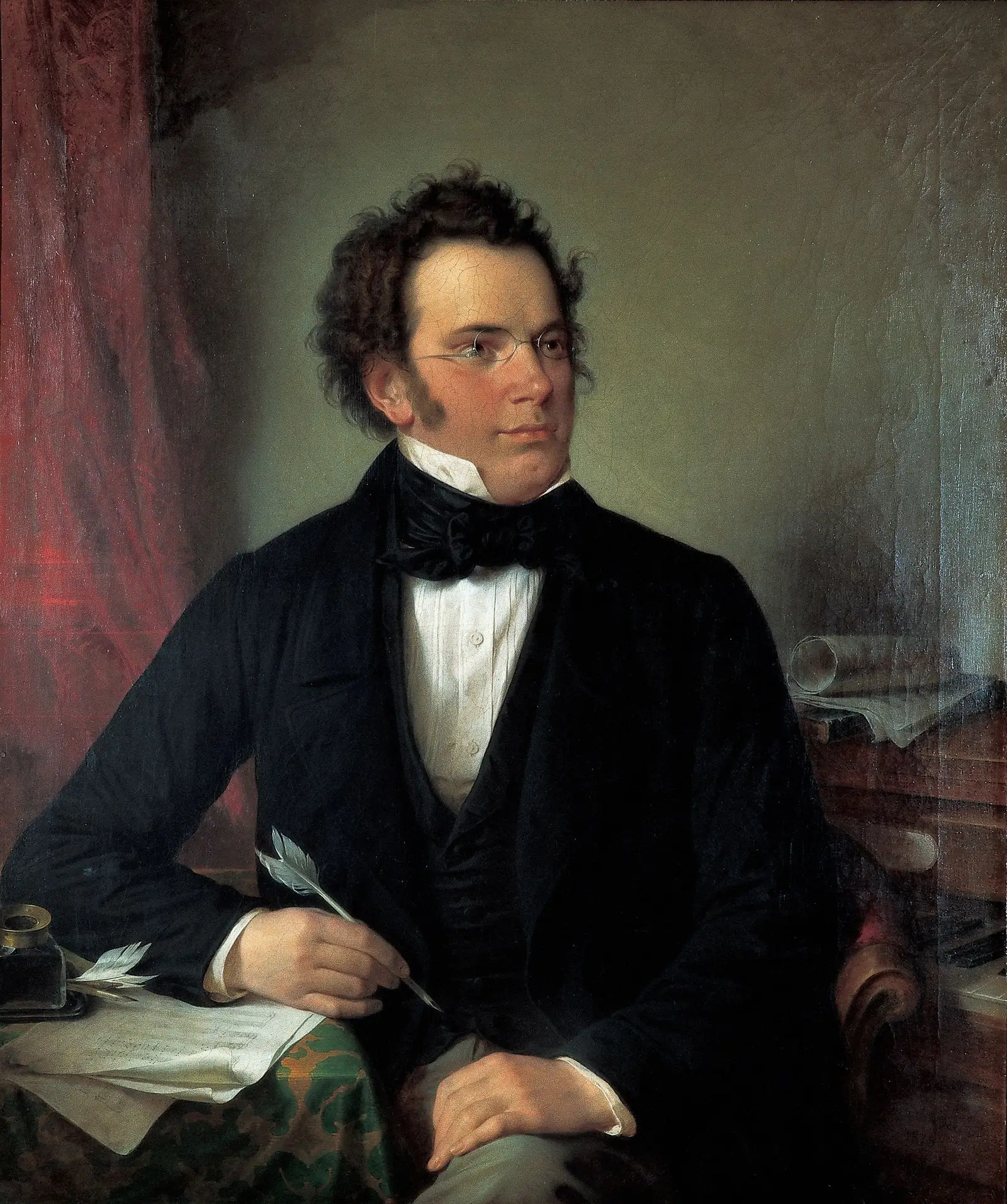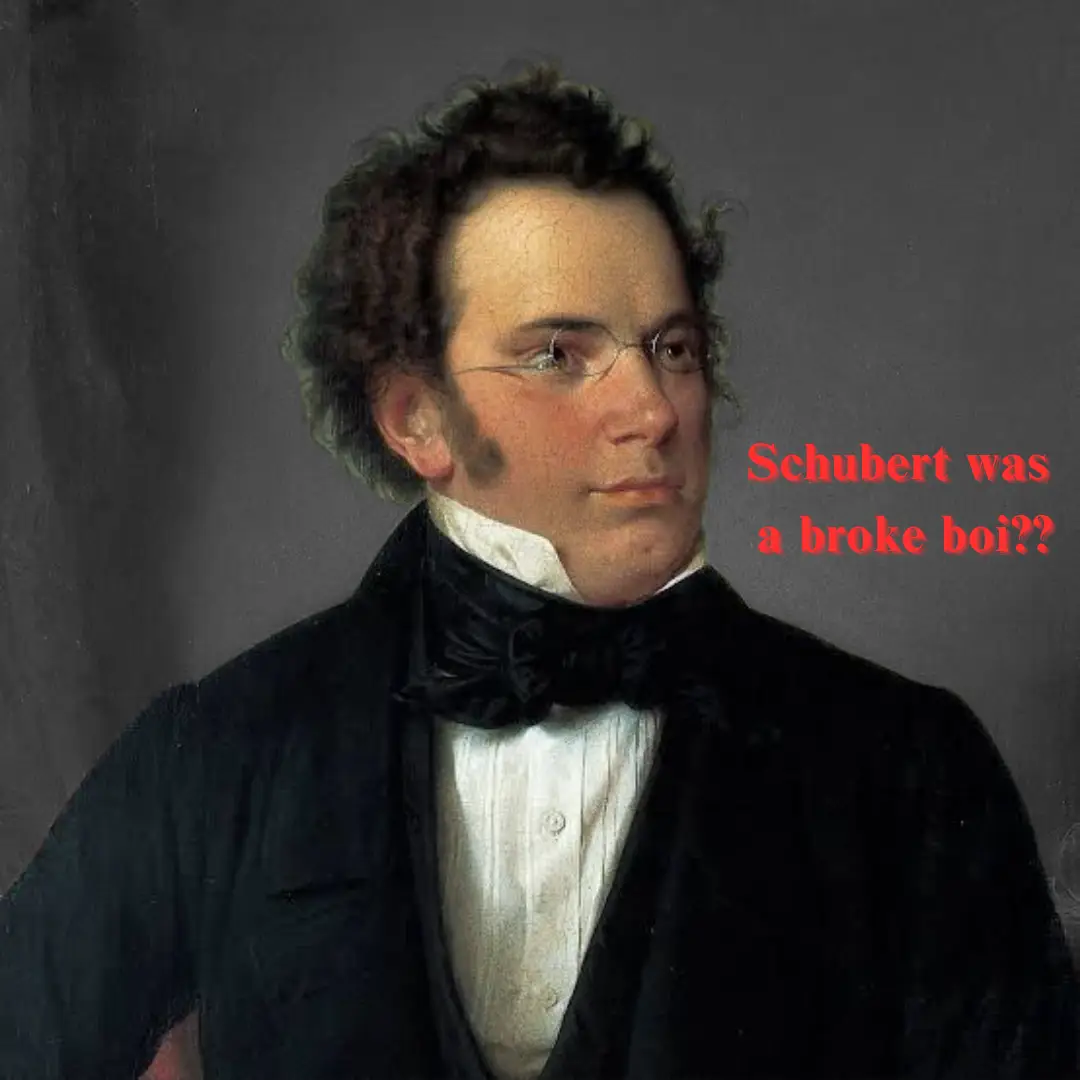The creative projects you put off could be a novel on your hard drive, the guitar in the corner of the room, an empty sketchbook, an unfinished poem, or anything you can think of. Why is it so damn hard to find time? The circumstances are not always ideal. You got bills to pay, school, and work. You tell yourself:
“I’ll finish it when I have my personal office!”
“I’ll do it when I have a better laptop.”
“I’ll do it when I have 3 hours of free time.”
We use those common excuses to stop us from creating. We believe we need the perfect circumstances to start or finish our creative work. I ironically relate to this; many of my writing and engineering projects are unfinished because of the same mistake. But what if the opposite is true? What if one of the greatest music composers in history proves that genius does not need to wait for a perfect setup?

Enter Franz Schubert. Have you ever heard about his work? For instance, this particular Ave Maria. Hauntingly beautiful.
His music today is performed in luxurious halls filled with people wearing suits. But the man behind the music lived far from luxury.
Franz Schubert was born in Vienna in 1797 and died tragically young at just 31. He was often broke, perpetually couch-surfing at friends’ apartments, and for much of his life, he couldn’t even afford his own piano. Let that sink in. A composer who would go on to define the Romantic era often had to compose on a beat-up old guitar or wait for a friend to let him use their instrument.
He was not financially successful and was not famous in his lifetime. Despite these hardships, Schubert was highly creative. In his short life, he wrote over 1,500 works. That includes more than 600 songs (known as Lieder). I mean, that’s A LOT of work!
He didn’t intend to create for money or fame. Most of his work was only performed for his friends in gatherings called ‘Schubertiads‘.
So what lessons can we take from this dead composer to help solve our modern dilemma?
Lesson 1: Use What You Have Now, Not What You Wish You Had
The tool does not make the artist; the artist uses the tool. Don’t wait until you can afford a better tool if you can’t create anything with what you have now. I had a friend who started learning piano on a melodica because he couldn’t afford a piano, just like Schubert. I also have a friend with a less powerful laptop who wrote better than me, both in quality and quantity. Just start and put in the pure work, and you’ll see results, no matter how small. If your drawing looks undesirable, usually, it does not mean you need a more expensive paintbrush; it usually means you need to put in more work to practice.
Lesson 2: Create for The Process, Not the Applause
If Schubert had overthought how to advertise Ave Maria and pondered the probability of the piece becoming successful in the future, he might never have started at all. This is an important mindset for creativity: just create and show your work. Most of the time, it’s a nothing-to-lose situation; people won’t care about your work if it’s bad, but they will likely reward you if your work is good. Embracing this approach can lead to unexpected opportunities and growth in your creative journey.
Lesson 3: Find Your Own ‘Schubertiads‘
Schubert didn’t thrive alone. He thrived in a community of artists and friends who supported his creations. Thus, creativity is not a one-man sport. Find a local community and an online community that can support and encourage you to keep creating. Surrounding yourself with like-minded individuals can provide valuable feedback, inspiration, and motivation to help you stay engaged in your creative journey.
Lesson 4: Don’t Find Time, Make Time
Start by dedicating your time and making commitments, even if it’s only 10 to 15 minutes a day. Consistent effort will bear fruit. Don’t wait for a long time window to start. 10 minutes of work is infinitely better than 0 minutes. Small, regular practice can lead to significant progress over time.
So what’s your excuse now? Your masterpiece isn’t waiting for the perfect moment. It’s waiting for you. Start creating. Now.


Leave a Reply